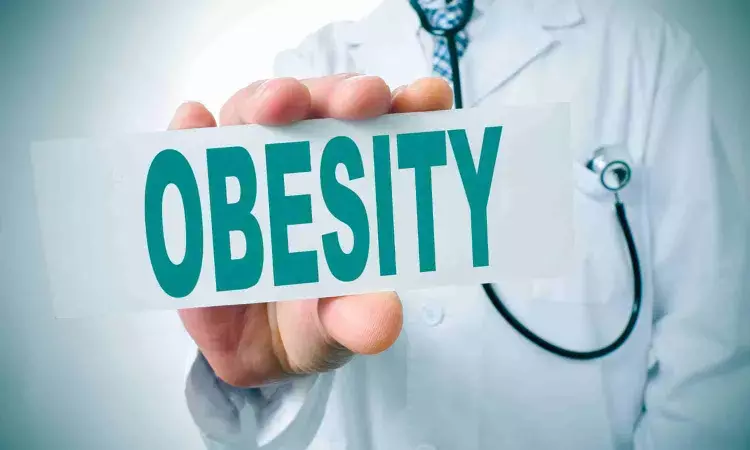- Home
- Medical news & Guidelines
- Anesthesiology
- Cardiology and CTVS
- Critical Care
- Dentistry
- Dermatology
- Diabetes and Endocrinology
- ENT
- Gastroenterology
- Medicine
- Nephrology
- Neurology
- Obstretics-Gynaecology
- Oncology
- Ophthalmology
- Orthopaedics
- Pediatrics-Neonatology
- Psychiatry
- Pulmonology
- Radiology
- Surgery
- Urology
- Laboratory Medicine
- Diet
- Nursing
- Paramedical
- Physiotherapy
- Health news
- Fact Check
- Bone Health Fact Check
- Brain Health Fact Check
- Cancer Related Fact Check
- Child Care Fact Check
- Dental and oral health fact check
- Diabetes and metabolic health fact check
- Diet and Nutrition Fact Check
- Eye and ENT Care Fact Check
- Fitness fact check
- Gut health fact check
- Heart health fact check
- Kidney health fact check
- Medical education fact check
- Men's health fact check
- Respiratory fact check
- Skin and hair care fact check
- Vaccine and Immunization fact check
- Women's health fact check
- AYUSH
- State News
- Andaman and Nicobar Islands
- Andhra Pradesh
- Arunachal Pradesh
- Assam
- Bihar
- Chandigarh
- Chattisgarh
- Dadra and Nagar Haveli
- Daman and Diu
- Delhi
- Goa
- Gujarat
- Haryana
- Himachal Pradesh
- Jammu & Kashmir
- Jharkhand
- Karnataka
- Kerala
- Ladakh
- Lakshadweep
- Madhya Pradesh
- Maharashtra
- Manipur
- Meghalaya
- Mizoram
- Nagaland
- Odisha
- Puducherry
- Punjab
- Rajasthan
- Sikkim
- Tamil Nadu
- Telangana
- Tripura
- Uttar Pradesh
- Uttrakhand
- West Bengal
- Medical Education
- Industry
Low birthweight and obesity during adolescence linked to substantial risk of diabetes: Study

Low birthweight and overweight during adolescence tied to a substantial risk of diabetes suggests a new study published in the Diabetologia.
This study aimed to determine the relative contributions of low birth weight and overweight during childhood and young adulthood to the risk of type 2 diabetes in men. They included 34,231 men born between1945 and 1961 from the population-based BMI Epidemiology Study (BEST) Gothenburg with data on birthweight and overweight status in childhood (8 years, BMI >17.9 kg/m2) and young adulthood (20 years, BMI >25 kg/m2). Participants were followed from age 30 years until 31 December 2019. Information on type 2 diabetes diagnoses was retrieved from Swedish national registers. HRs and 95% CIs for the risk of early (≤59.4 years) and late (>59.4 years) type 2 diabetes were estimated using Cox proportional hazards regression. Results: During follow-up, a total of 2733 cases of type 2 diabetes were diagnosed.
Birthweight below the median (<3.6 kg) and overweight at age 20 (BMI >25 kg/m2), but not overweight at age 8 (BMI >17.9 kg/m2), were associated with an increased risk of early and late type 2 diabetes. Of note, a birthweight below the median followed by overweight at age 20 years was associated with a substantially increased risk of early type 2 diabetes (HR 6.07, 95% CI 5.08, 7.27), and a low birth weight (≤2.5 kg) combined with overweight at age 20 years was associated with a massive risk of early type 2 diabetes (HR 9.94, 95% CI 6.57, 15.05). Low birth weight and overweight in young adulthood are the major developmental determinants of adult type 2 diabetes risk in men. They contribute in an additive manner to the risk of type 2 diabetes. To reduce the risk of type 2 diabetes, young adult overweight should be avoided, especially in boys with a low birth weight.
Reference:
Célind J, Bygdell M, Bramsved R, Martikainen J, Ohlsson C, Kindblom JM. Low birth weight and overweight during childhood and young adulthood and the risk of type 2 diabetes in men: a population-based cohort study. Diabetologia. 2024 Feb 22. doi: 10.1007/s00125-024-06101-y. Epub ahead of print. PMID: 38386069.
Dr. Shravani Dali has completed her BDS from Pravara institute of medical sciences, loni. Following which she extensively worked in the healthcare sector for 2+ years. She has been actively involved in writing blogs in field of health and wellness. Currently she is pursuing her Masters of public health-health administration from Tata institute of social sciences. She can be contacted at editorial@medicaldialogues.in.
Dr Kamal Kant Kohli-MBBS, DTCD- a chest specialist with more than 30 years of practice and a flair for writing clinical articles, Dr Kamal Kant Kohli joined Medical Dialogues as a Chief Editor of Medical News. Besides writing articles, as an editor, he proofreads and verifies all the medical content published on Medical Dialogues including those coming from journals, studies,medical conferences,guidelines etc. Email: drkohli@medicaldialogues.in. Contact no. 011-43720751


